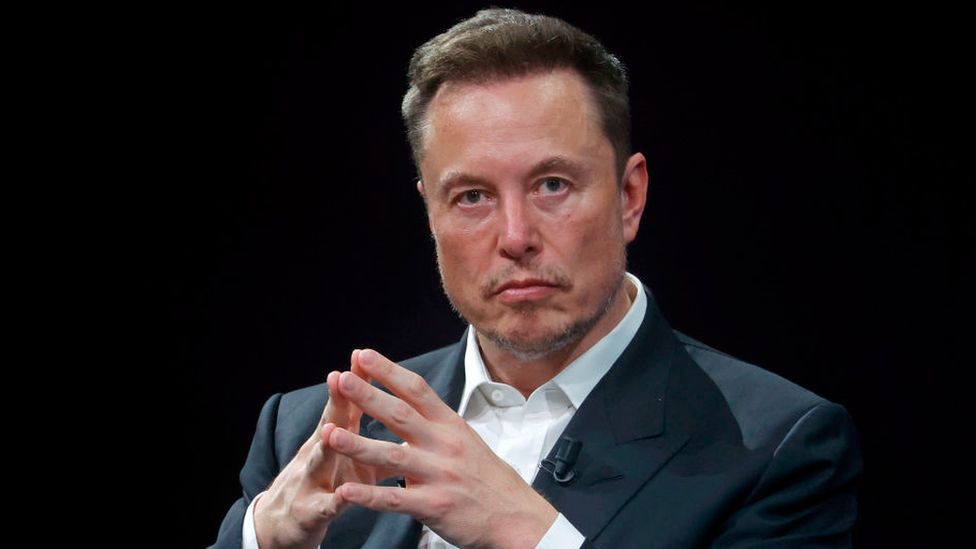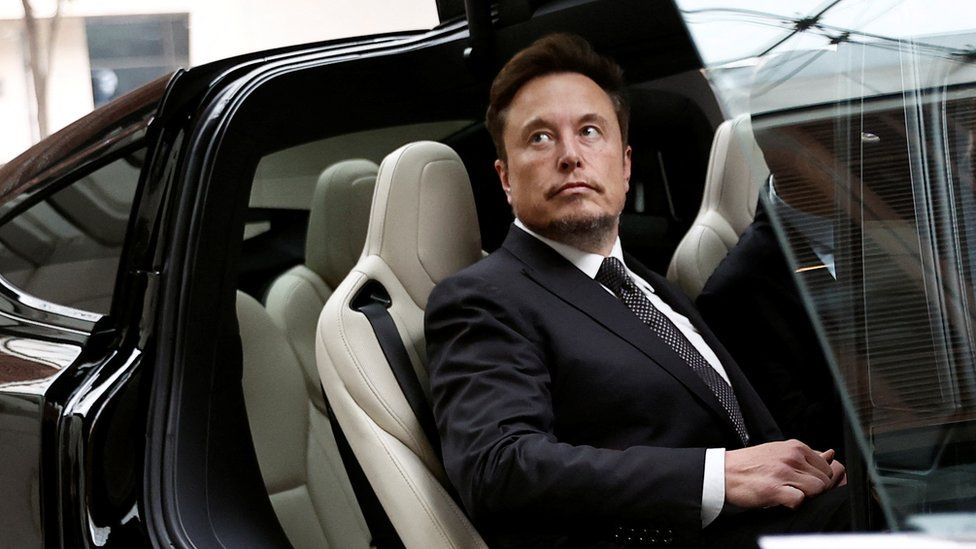Elon Musk woos world leaders, courting controversy
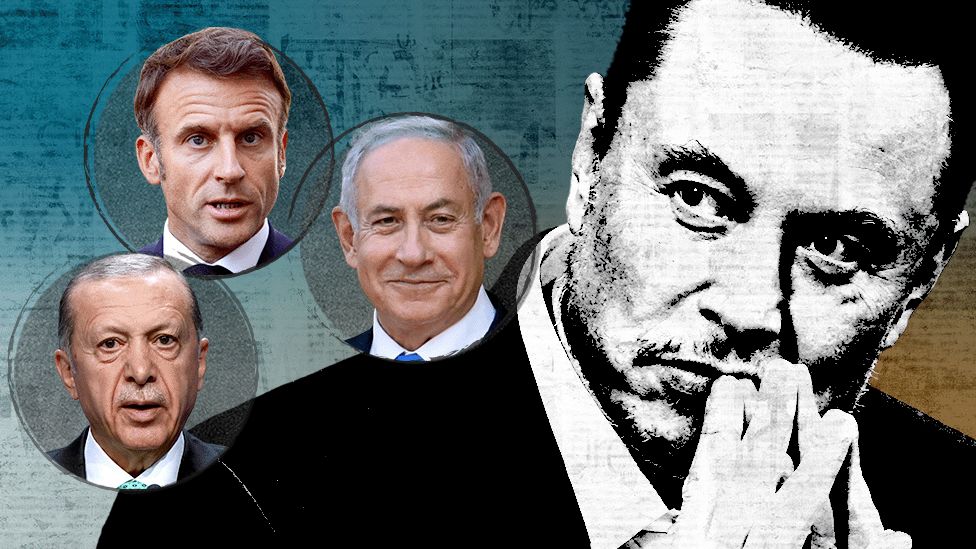
He is “very impressed” with Emmanuel Macron. Narendra Modi can count him as “a fan”. And Benjamin Netanyahu just dropped in to see him.
A parade of foreign leaders on recent US trips, including on official state visits at the White House’s invitation, have added sit-downs with Elon Musk to their schedules.
This year, the world’s richest man has met with, to name a few, the heads of France, Italy, India, South Korea – and, in just the past two days, Turkey and Israel.
Yet while the mercurial billionaire is more highly sought after than ever, there is no love lost between him and the Biden administration.
And as the outspoken contrarian’s political reach expands, including by wading into sensitive geopolitical issues, there is growing unease for some over Mr Musk’s power and access.
Musk’s face time with world leaders
Some foreign leaders are seeking an economic and electric vehicle industry boost from a new Tesla factory or an infrastructure investment from SpaceX’s Starlink satellite internet services.
Others have discussed X, the Musk-owned platform formerly known as Twitter, and the future of artificial intelligence.
French President Macron has courted the tech mogul thrice since December, a charm offensive driven by the desire for a new Tesla gigafactory in his country.
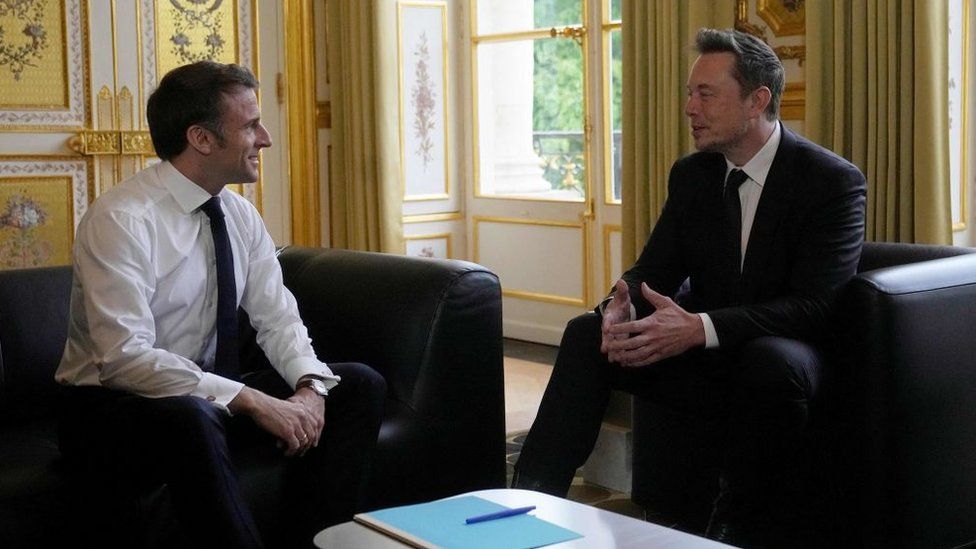
Similar entreaties have come from Italian Prime Minister Giorgia Meloni in June and Turkish President Recep Tayyip Erdogan this past Sunday in New York.
And though Mr Musk had just been in New York ahead of this week’s United Nations General Assembly, Israeli PM Netanyahu flew to California for an AI conversation with him on Monday.
The latter discussion took place against the backdrop of Mr Musk’s simmering feud with the Anti-Defamation League, the Jewish civil rights organisation.
The ADL and other groups have released findings that suggest hate speech has grown dramatically on X since he bought the site last year and changed its moderation rules.
Mr Netanyahu – who has previously tweeted admiration for Mr Musk’s “genius & impact on humanity” – encouraged him in their live-streamed conversation on Monday to “find the balance” between protecting free speech and punishing hate speech.
It was not the first time he has had to answer for concerns with X since he took over.
His sit-down with Indian PM Modi in June came on the heels of ex-Twitter CEO Jack Dorsey’s allegation that the Indian government had threatened to shut down the site if it did not comply with orders to take down content.
Those in the pre-Musk era of the company had largely pushed back against such demands, but Mr Musk said he could not do so.
“If we don’t obey local government laws, we will get shut down so the best we can do is to hew close to the law in any given country, but it is impossible for us to do more than that or we’ll be blocked and our people will be arrested,” he told reporters after the Modi meeting.

Musk’s growing political clout
While many of these meetings have ostensibly focused on Mr Musk’s significant business interests, they come as he wields – and increasingly asserts – influence over global geopolitics.
Recent statements from the South African-born US citizen have been interpreted in some corners as an affront to US interests, as well as those of the broader global West.
Last week, he left Taiwanese officials fuming with apparently offhand comments on Beijing’s ‘One-China’ policy, suggesting the self-governed island is “analogous to like Hawaii or something like that, an integral part of China that is arbitrarily not part of China”.
Taiwan’s Foreign Minister Joseph Wu shot back on X: “Listen up, Taiwan is not part of the PRC & certainly not for sale!”
The spat gave fuel to claims by Musk critics that he is quick to acquiesce to the demands of other countries, even when they are US adversaries.
“Hope Elon Musk can also ask the CCP to open X to its people,” Mr Wu wrote. “Perhaps he thinks banning it is a good policy, like turning off Starlink to thwart Ukraine’s counterstrike against Russia.”
The Starlink claim – that the entrepreneur “secretly told his engineers to turn off coverage” to prevent a Ukrainian sneak attack on the Russian naval fleet in Crimea – concerned US allies.
But amid strong pushback from Mr Musk, author Walter Isaacson began walking back the claim as his book was hitting shelves, writing on X that Starlink coverage up to Crimea was never in fact enabled.
Neither Mr Isaacson nor Mr Musk responded to requests for comment from the BBC.
The Isaacson book, however, claims elsewhere that, before Mr Musk made his decision, Russia’s ambassador to the US “explicitly told him that a Ukrainian attack on Crimea would lead to a nuclear response”.
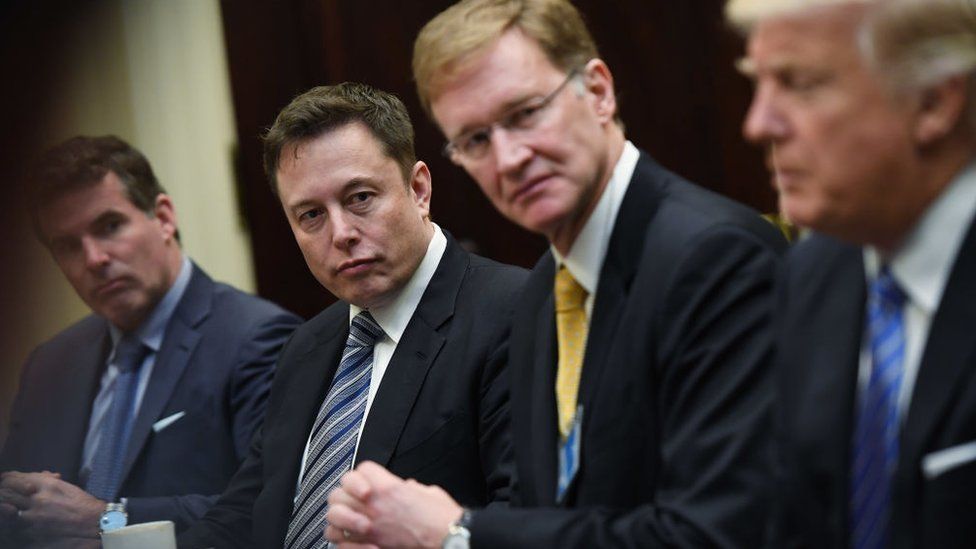
And after he tweeted out a peace proposal last year that led one Ukrainian official to question whether he had “been hacked by Russians”, political scientist Ian Bremmer dropped a bombshell on X.
“elon musk told me he had spoken with putin and the kremlin directly about ukraine. he also told me what the kremlin’s red lines were,” he wrote.
Mr Musk denied the allegation, but Mr Bremmer doubled down: “i’ve long admired musk as a unique and world-changing entrepreneur, which i’ve said publicly. he’s not a geopolitics expert.”
The next month, when asked if Mr Musk was a threat to US national security, President Biden replied that his “cooperation and/or technical relationships with other countries is worthy of being looked at”.
That is the tip of the iceberg in a frosty relationship – the White House tends to avoid mention of Tesla in its public comments on the electric vehicle industry, talking instead about unionised car-makers, while Mr Musk tangles online with top Democrats, says he can “no longer support” the party and flirts with Republican presidential challengers.
Ashlee Vance, a Musk biographer who has covered him for more than a decade, argues that Mr Musk has been feeling frustrated and under-appreciated.
“This is a guy who likes to get a lot of [expletive] done, he thinks he’s right, and he never likes things getting in his way,” Mr Vance told the BBC.
“He was already this material wildcard, [the Biden administration] poured gasoline on the fire and they now have zero goodwill with which to try to rein him in.”
Musk’s changing public image
The runaway success of Tesla and SpaceX have helped transform Mr Musk from genius innovator to celebrity icon.
“In the span of about 25 years, you could argue he has accomplished more than any other human being,” said Mr Vance.
“He stands out in history of doing this across different industries on an unparalleled scale.”
This video can not be played
To play this video you need to enable JavaScript in your browser.
But Mr Musk’s growing wealth and political evolution over the past few years has also dovetailed with a more divisive and polarising public image, driven in part by his always-online, troll-happy persona on X.
“He’s always been this guy who was very sure of his opinions on things and not afraid to express them,” Mr Vance said.
“He used to play both sides to benefit his companies. He was pretty methodical, didn’t talk about politics too much and, anytime he was talking about politics, it was around an issue like climate change.”
Since 2017 or 2018, however, the billionaire has begun to caricature his public persona, he says.
“He says whatever comes to his mind. He’s alienating people for no reason. He’s sort of undermining himself at a time when his companies are actually doing really well.”
“In person, he’s actually not the Twitter character at all,” Mr Vance continued. “Over time, he’s become more sociable, he’s extremely rational and interesting, and he’s a very different person.”
Noam Cohen, a former New York Times tech columnist and author of The Know-It-Alls: The Rise of Silicon Valley as a Political Powerhouse and Social Wrecking Ball, takes a slightly different view.
He believes that Mr Musk’s singular ambition and vision have made him an over-achiever in business as well as a “quasi-governmental” force.
In his telling, Mr Musk has combined “the physical” – large factories, lots of employees and valuable products – with “the digital” – control over how information spreads.
And no other tech titan, whether like Mark Zuckerberg or Jeff Bezos, has matched that, according to Mr Cohen.
This video can not be played
To play this video you need to enable JavaScript in your browser.
“If he didn’t buy Twitter, would we be talking about him? If he was just a multinational corporation, it would be normal that, if he wants factories in China, he meets with China.”
And yet, he adds, Mr Musk has fallen into many of the same pitfalls as his Silicon Valley peers.
“They basically see the world the same way: you’re out for yourself, there’s no social safety net, you’ve got to work hard and the best rise to the top,” Mr Cohen said.
“It’s a combination of greed, and a basic mindset that sees intelligence as being the most important factor and the smartest people should run the world.”
Mr Cohen says the fact that Mr Musk and other unelected moguls can make unilateral decisions with significant geopolitical consequences is a warning about wealth concentration and waning democracy.
“Is it acceptable for him to be in a position where he can decide whether the satellites go on or not? Is it acceptable for him to lay the public square?” he asked.
“Just because you’re good at programming or business, why would that mean you’re good at making rules for how the world should work?”
This video can not be played
To play this video you need to enable JavaScript in your browser.
Related Topics
-
-
5 days ago
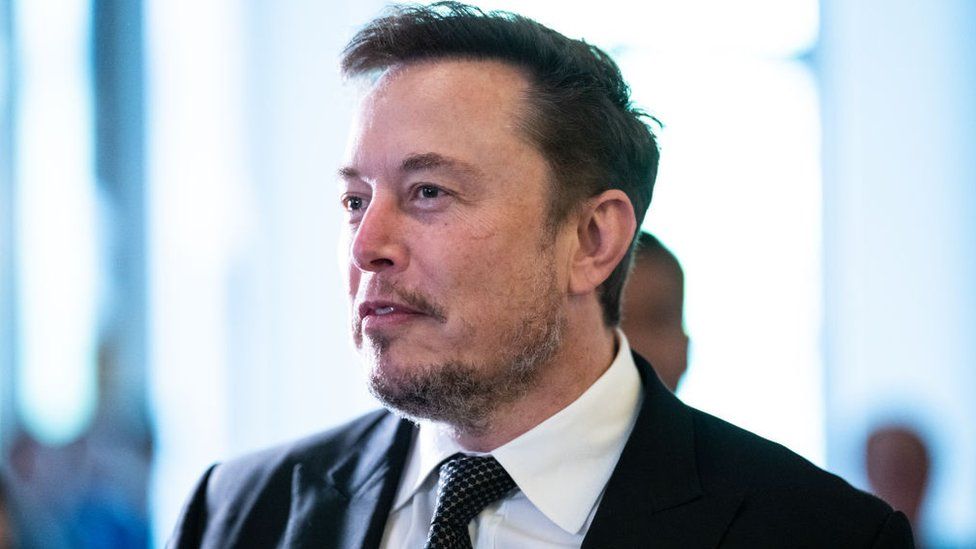
-

